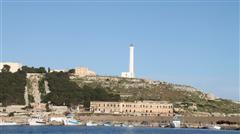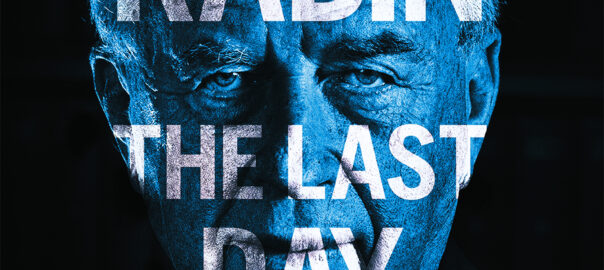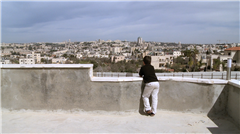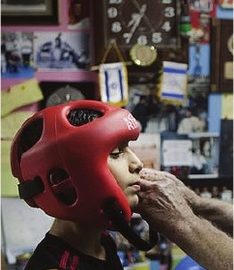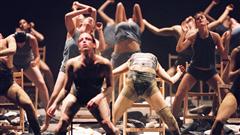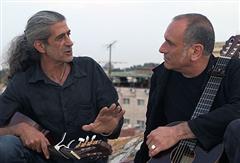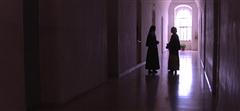Little has been told about the thousands of Holocaust survivors that arrived in Southern Italy after the war. The local population received them with open arms and allowed these refugees to rebuild their lives under the warm Mediterranean sun. They recovered, married, and had hundreds of children, even as they prepared to immigrate to Palestine. Now, almost seven decades later, three women born in Santa Maria di Leuca return to Italy to see if they can find a trace of their parents’ brief stay there. Enchanted by the place and enamored by the people, these women cast a light on a previously little-known reality: that of life immediately after the war. This film blends rare archival footage and testimonies into a poignant story about the hope that shone from the coastline along Italy’s “boot.”
For many Israelis, the assassination of Prime Minister Yitzhak Rabin in 1995 marked a grim turning point for their country. In the words of the commission set up to investigate the murder, “Israeli society [would] never be the same again. As a democracy, political assassination was not part of our culture.” In the eyes of even more people, the murder ended all hope for the Israeli-Palestinian peace process through the Oslo Accords and altered the course of history. But, as Amos Gitai sets out to prove in his brave and provocative new film, Rabin’s assassination was not just the act of one fanatic; it was the culmination of a hate campaign that emanated from the rabbis and public figures of Israel’s far right.
Enter the world of Ohad Naharin, renowned choreographer and artistic director of the Batsheva Dance Company. “Mr. Gaga”, eight years in the making, captures the elusive beauty of contemporary dance and immerses the audience in the creative process behind Batsheva’s unique performances. Using intimate rehearsal footage, extensive unseen archive materials and stunning dance sequences, acclaimed director Tomer Heymann (Paper Dolls, I shot my Love) tells the fascinating story of an artistic genius who redefined the language of modern dance.
The movie describes the 10 days that came before the horrible 1973 Yom Kippur War. It tells the stories of the heroes of that year, and how they ignore all signs that say the war will begin on the evening of Yom Kippur.
David Broza, the Israeli singer-songwriter, sets out to realize his dream of cooperation and dialog between Israelis and Palestinians through music. During 8 days and nights of joint creation in an East Jerusalem studio a hopeful message of equality and unity arises.
The film creates a daring first exposure on the way parents, rabbis, teachers, pedagogues and therapists within the Orthodox Hasidic Jewish Community educating their male children from infancy to adolescence, to avoid spilling their sperm. They target them to keep their seed only after marriage with a female for the purpose of fertilization. “Sacred Sperm” penetrates into one of the most suppressed hidden issues in the Orthodox Hasidic Jewish Community – a Taboo. Throughout the film we follow the emotional and theological struggle of the director who is trying to find a proper way as a father to explain his teenager son logically why he should keep this major Mitzvah (commandment) which perceived by many as unreasonable and seems impossible to fulfill
We live at a moment in time when the Israeli-Palestinian conflict, now more than a century old, continues to be of overwhelming international political and societal importance. From its inception, that conflict has also, of course, had powerful and deeply troubling consequences for Israelis and Palestinians themselves. The story at its most basic level is one that involves two peoples struggling for national recognition and expression in a small but richly significant piece of land. The tragedy of this history, as both the Israeli novelist, Amos Oz, and the Palestinian scholar, Sari Nusseibeh, have each pointed out, stems from a conflict between the rights of two peoples with equal and legitimate aspirations to nationhood and self-expression in a single small territory to which they can both lay claim.
Efrat, a religious woman who grew up in the secular world, is married to a young rabbi and raising three small daughters. Curiosity draws her to the walled garden of the St. Clare monastery in Jerusalem, where befriends a number of the nuns there and tries to get a sense of the women they are under their severe black and white dress, their faith and their life’s mission. Then, a dramatic and unforeseen event changes Efrat’s life irreversibly. After a year of absence she returns to the monastery, hungry for the spiritual calm she sought there in the first place. A gentle story of women reaching out to one another across an almost unbridgeable gap of age, history, culture and religion.
